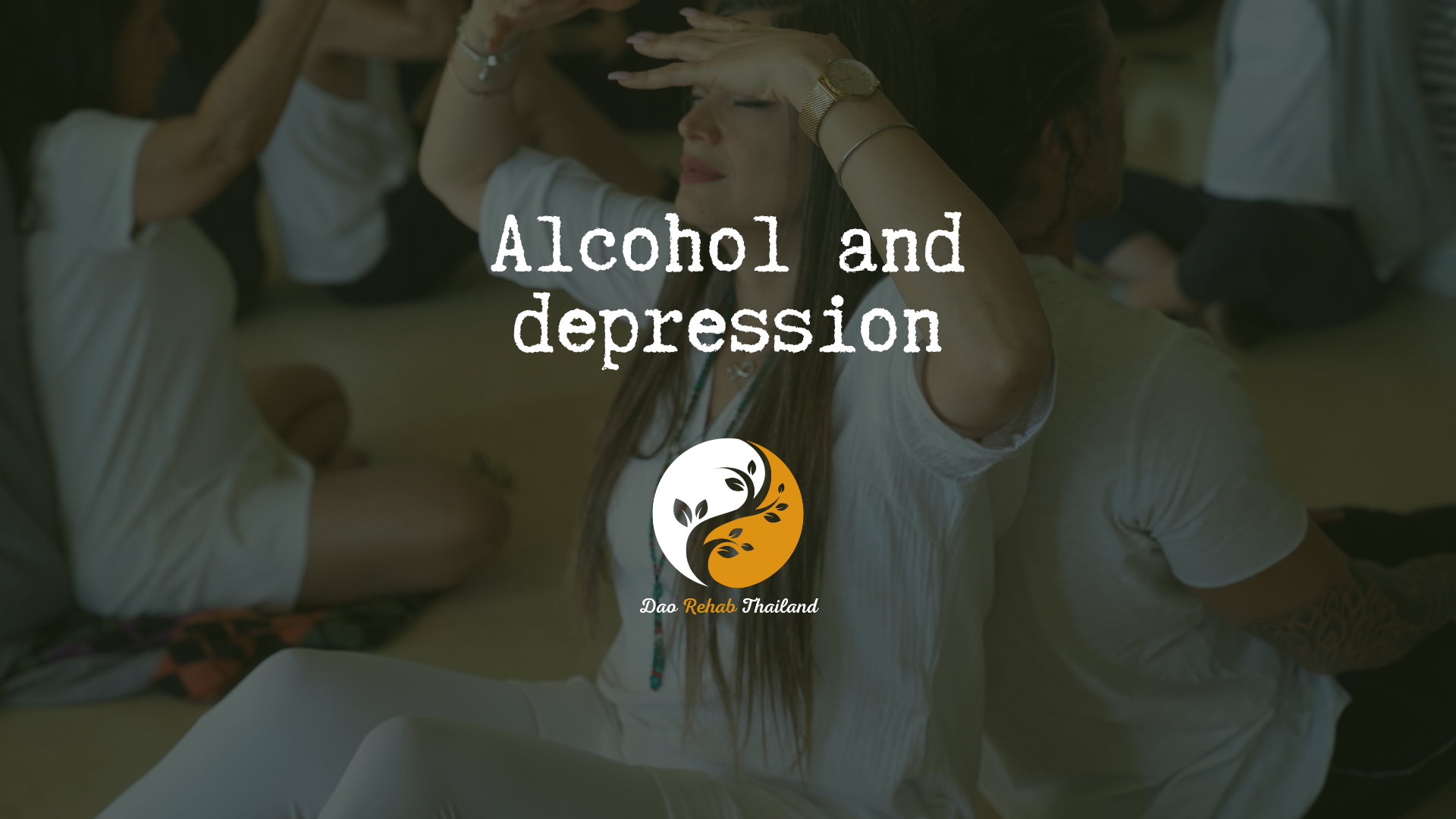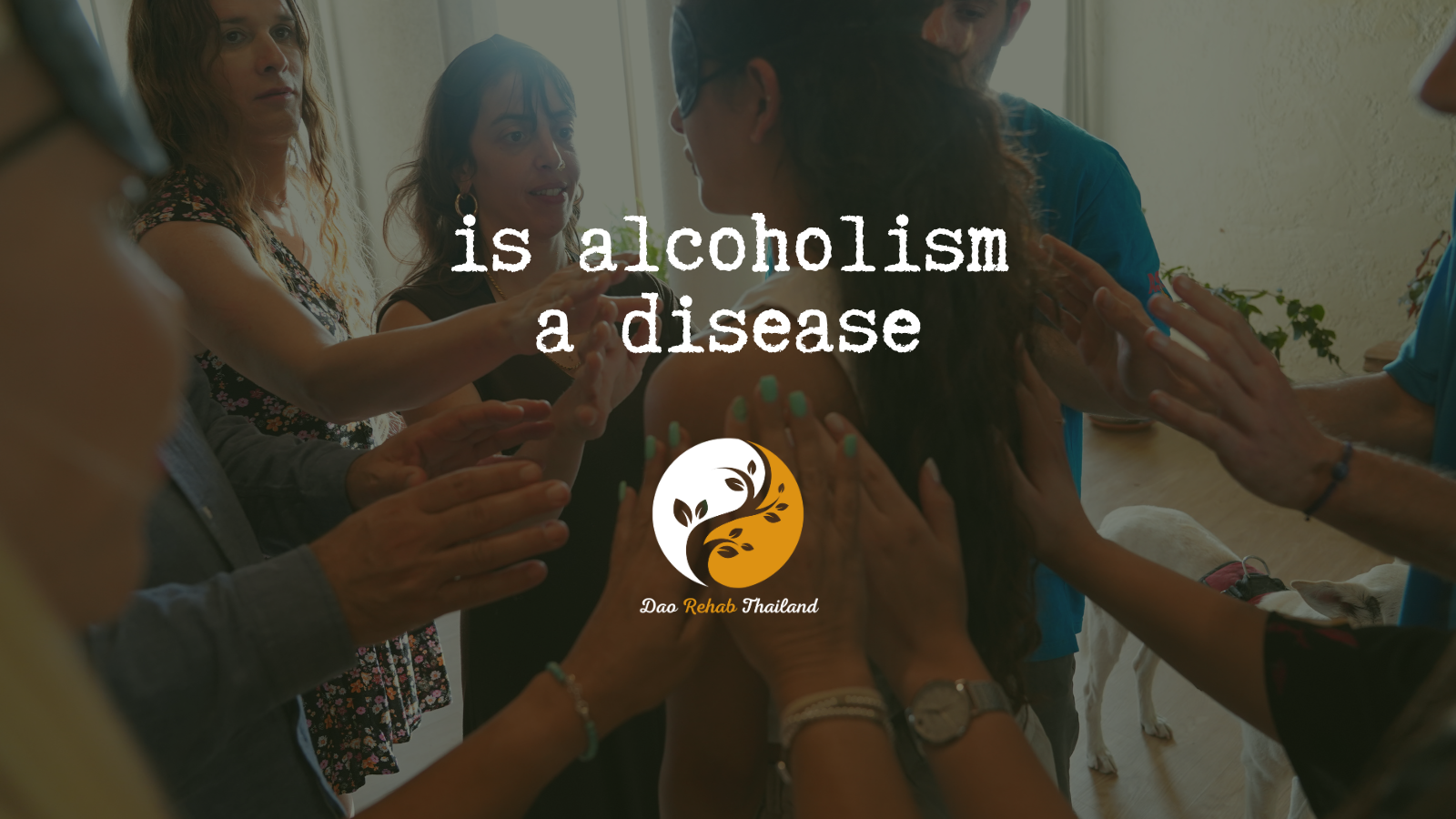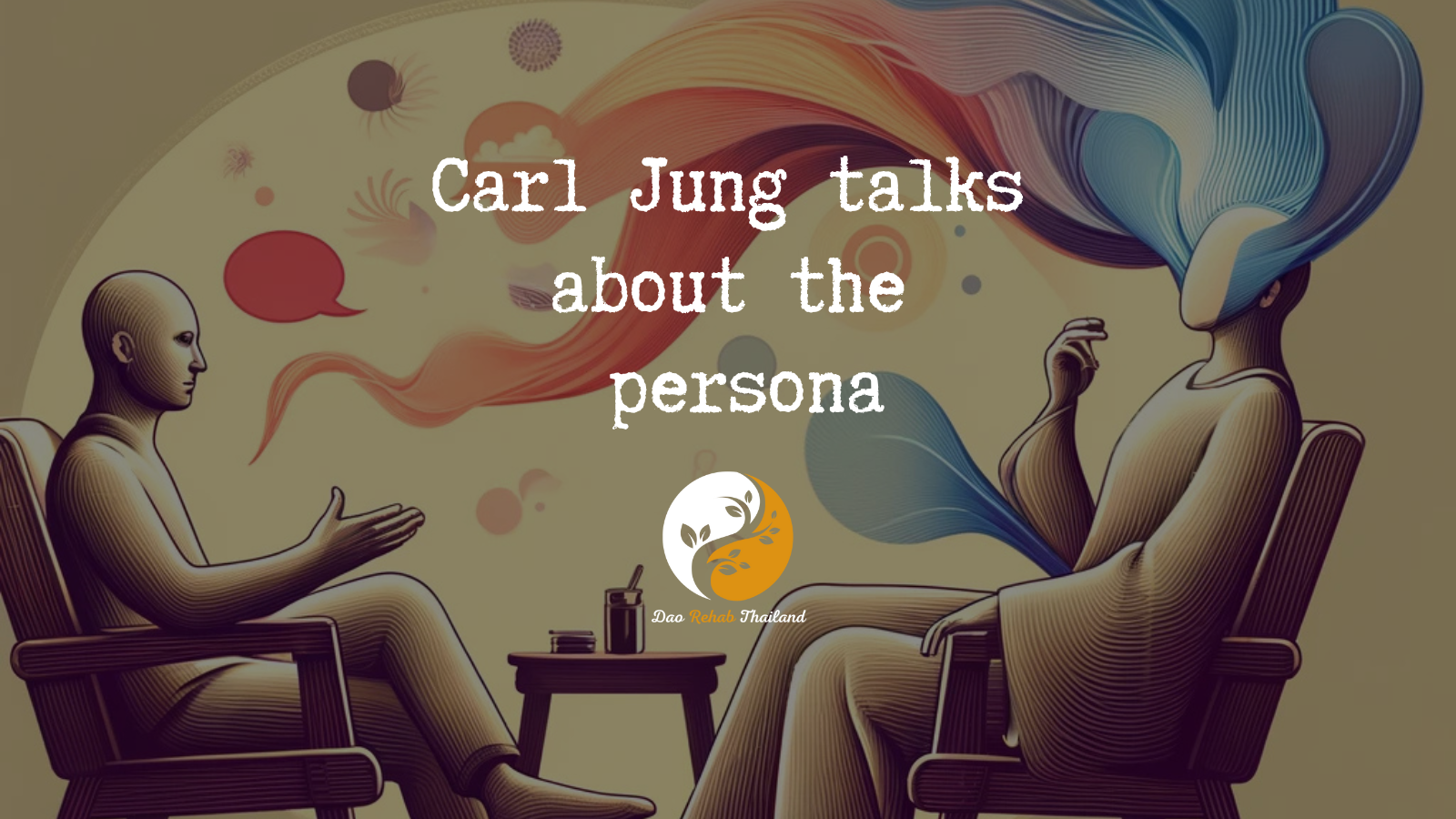
Alcohol and depression – Thailand
Alcohol and depression
“Turning the impossible into possible”

"Detox from Alcohol at a Luxury Holistic Center in Thailand and Israel"

Alcohol and depression
Alcohol and depression are closely linked, as each can worsen the other in a harmful cycle. Drinking alcohol, especially in excess, can have significant effects on mental health, often leading to or exacerbating symptoms of depression. Here’s a look at how alcohol and depression interact:
"Holistic Center for Trauma, Addiction, and Mental Imbalance Treatment in Thailand"
“Come to the beginning of the journey to freedom from addiction to alcohol, drugs, and pills, and rediscover your life within the quiet embrace of DaoTherapy Rehab in Thailand—where holistic healing meets empowering recovery.”
DaoTherapy Holistic Rehab
Key Elements of alcohol Detox:
Medical Supervision: Subutex alcohol must be conducted under medical supervision, as the body may experience withdrawal symptoms. These can include nausea, anxiety, muscle aches, and insomnia. A medical team will monitor and manage these symptoms to ensure the patient’s safety and comfort.
Holistic Therapies:
Holistic Therapies: Many detox programs incorporate holistic therapies such as mindfulness, yoga, and meditation to help individuals cope with stress and anxiety during the detox process. These therapies support the mind-body connection and contribute to overall recovery.
Tapering Process
Tapering Process: alcohol detox often involves a gradual tapering of the drug to reduce withdrawal severity. Doctors will slowly decrease the dosage over time to allow the body to adjust to lower levels of the substance.
Psychological Support:
Psychological Support: Like any addiction recovery process, detox from alcohol includes psychological support. This can involve counseling, therapy, or support groups to address the mental and emotional aspects of addiction.
Post-Detox Treatment:
Post-Detox Treatment: After completing detox, continuing treatment is crucial to prevent relapse. This often includes participation in ongoing therapy, group support, and the development of new coping strategies to maintain sobriety.
Alcohol as a Depressant
Alcohol and depression are closely linked, as each can worsen the other in a harmful cycle. Drinking alcohol, especially in excess, can have significant effects on mental health, often leading to or exacerbating symptoms of depression. Here’s a look at how alcohol and depression interact:
1. Alcohol as a Depressant:
– Impact on Brain Chemistry: Alcohol is a central nervous system depressant, affecting neurotransmitters like serotonin and dopamine that regulate mood. While alcohol may create a temporary feeling of relaxation or euphoria, it can lead to decreased levels of these neurotransmitters over time, increasing feelings of sadness or depression.
– Long-Term Effects: Prolonged alcohol use can cause persistent changes in brain chemistry, leading to reduced ability to experience pleasure or cope with stress, which are symptoms common in depression.
2. The Cycle of Alcohol Use and Depression:
– Drinking to Cope: Many people turn to alcohol as a way to numb emotional pain or manage stress, anxiety, or depressive symptoms. This is sometimes called “self-medication.” While alcohol may provide temporary relief, it often worsens underlying depression over time.
– Alcohol Worsening Depression: Frequent or heavy drinking can intensify depressive symptoms, leading to increased sadness, feelings of hopelessness, and irritability. This can make the original depression worse and more challenging to treat.
– Increased Risk of Dependence: Using alcohol to cope with depression can lead to dependency or addiction, creating a dual diagnosis (or “co-occurring disorder”) where both depression and alcoholism need to be treated simultaneously.
3. Effects on Physical Health and Sleep:
– Sleep Disruption: Alcohol can disrupt sleep cycles, leading to poor-quality sleep or insomnia. Since sleep is essential for mental health, this disruption often contributes to or worsens depression.
– Health Consequences: Alcohol use, particularly in large amounts, can lead to health issues like liver disease, weakened immune function, and cardiovascular problems, which can further impact mood and mental health.
4. Risk of Suicidal Thoughts and Behavior:
– Increased Risk of Suicide: Alcohol abuse is associated with a higher risk of suicidal thoughts and behaviors, particularly among those already struggling with depression. Alcohol can reduce inhibitions and impair judgment, making impulsive actions more likely.
– Lowered Coping Abilities: For individuals with depression, alcohol lowers the ability to cope with difficult emotions or challenges, which can heighten feelings of hopelessness.
5. Treatment for Co-Occurring Alcohol Use and Depression:
– Integrated Treatment Approach: When both depression and alcohol use disorder are present, a comprehensive treatment plan addressing both issues is essential. This often includes a combination of therapy, medication, and support groups.
– Therapies: Cognitive Behavioral Therapy (CBT) and Dialectical Behavior Therapy (DBT) can be effective for both alcohol use and depression, helping individuals develop healthier coping mechanisms and address underlying issues.
– Medication: In some cases, antidepressant medications may be prescribed, though it’s important to work with a healthcare provider to avoid interactions with alcohol.
6. Breaking the Cycle:
– Sobriety and Improved Mental Health: Reducing or eliminating alcohol can help improve mood, clarity of thought, and sleep quality, which may lead to an improvement in depressive symptoms.
– Support Networks: Support groups such as Alcoholics Anonymous (AA) and mental health support groups provide community, accountability, and resources for individuals working to break the cycle of alcohol use and depression.
Alcohol and depression often reinforce each other, creating a challenging cycle that impacts both mental and physical health. Recognizing this connection is the first step toward treatment, and with the right support, individuals can find healthier ways to manage emotions, reduce dependence on alcohol, and improve their overall well-being.

contact us
Contact us with your questions
We would love to speak with you! Feel free to reach out with any questions.

get in touch
Schedule a free consultation
Schedule a free consultation with our team and let’s make things happen!
The Cycle of Alcohol Use and Depression
The “cycle of alcohol use and depression” is a self-reinforcing loop where each condition worsens the other. This cycle can make recovery challenging, as the factors that lead to drinking often exacerbate depressive symptoms, and vice versa. Here’s a closer look at how this cycle operates and impacts individuals:
1. Using Alcohol to Cope with Depression
– Self-Medication: Many people with depression turn to alcohol as a way to temporarily relieve their symptoms. They may drink to escape feelings of sadness, loneliness, or hopelessness.
– Temporary Relief: Alcohol can initially numb emotional pain, create a temporary sense of relaxation, and reduce social inhibitions, making it appear to alleviate depressive symptoms. However, this relief is usually short-lived.
2. Alcohol Worsening Depression
– Chemical Impact on the Brain: Alcohol disrupts brain chemistry, especially neurotransmitters like serotonin and dopamine, which are essential for mood regulation. This disruption can lower mood stability and increase irritability, sadness, or anxiety.
– Rebound Effects: As the alcohol wears off, feelings of depression and anxiety often return with more intensity, leaving the individual feeling worse than before they started drinking.
– Sleep Disruption: Alcohol disrupts sleep patterns, which is critical for mental health. Poor sleep can intensify depression, creating a continuous cycle of fatigue, low energy, and mood instability.
3. Increased Drinking Due to Worsening Symptoms
– Tolerance and Dependence: As depression worsens, individuals may increase their alcohol intake, developing tolerance (needing more alcohol to feel the same effect) and eventually dependence.
– Escalation of Use: In response to the intensifying depressive symptoms, they may drink more frequently or in larger amounts, believing it will help them feel better, thus worsening both conditions.
4. Development of Alcohol Dependence and Greater Risk of Health Problems
– Physical and Psychological Dependence: Over time, the body becomes accustomed to the presence of alcohol, leading to cravings and withdrawal symptoms when not drinking. This dependence makes it harder to stop, even as negative consequences mount.
– Health Deterioration: Long-term alcohol use can lead to health problems, such as liver disease, cardiovascular issues, and weakened immunity, which can further compound feelings of depression and hopelessness.
5. Impact on Relationships and Social Isolation
– Relationship Strain: Alcohol use and depressive behaviors can strain relationships with family and friends, leading to conflicts, misunderstandings, and distancing.
– Increased Isolation: As relationships suffer, individuals may isolate themselves, further intensifying depressive feelings and leading to even more reliance on alcohol as a coping mechanism.
6. Risk of Suicidal Thoughts and Actions
– Reduced Inhibition and Impulsivity: Alcohol lowers inhibitions, which can lead to impulsive and risky behaviors, including suicidal thoughts and actions, particularly in individuals with severe depression.
– Feelings of Hopelessness: The ongoing cycle can leave individuals feeling trapped, increasing the risk of suicidal ideation due to feelings of helplessness and despair.
Breaking the Cycle
To break the cycle of alcohol use and depression, integrated treatment is essential. Effective strategies include:1. Therapy and Counseling: Cognitive Behavioral Therapy (CBT), Dialectical Behavior Therapy (DBT), and other therapeutic approaches can help address underlying issues, develop coping strategies, and reduce both alcohol use and depressive symptoms.
2. Medication: For some individuals, medications like antidepressants can stabilize mood, though they should be used under medical supervision to avoid interactions with alcohol.
3. Support Systems: Support groups such as Alcoholics Anonymous (AA) and mental health support groups provide community, accountability, and encouragement throughout the recovery process.
4. Health and Lifestyle Changes: Establishing healthier habits, such as regular exercise, nutrition, and mindfulness practices, can boost mood and provide alternative ways to manage stress and depression.
The cycle of alcohol use and depression can be debilitating, as each condition feeds into and worsens the other. Breaking this cycle requires a multi-faceted approach, focusing on both mental health and addiction treatment to provide lasting relief and a path toward healing.








